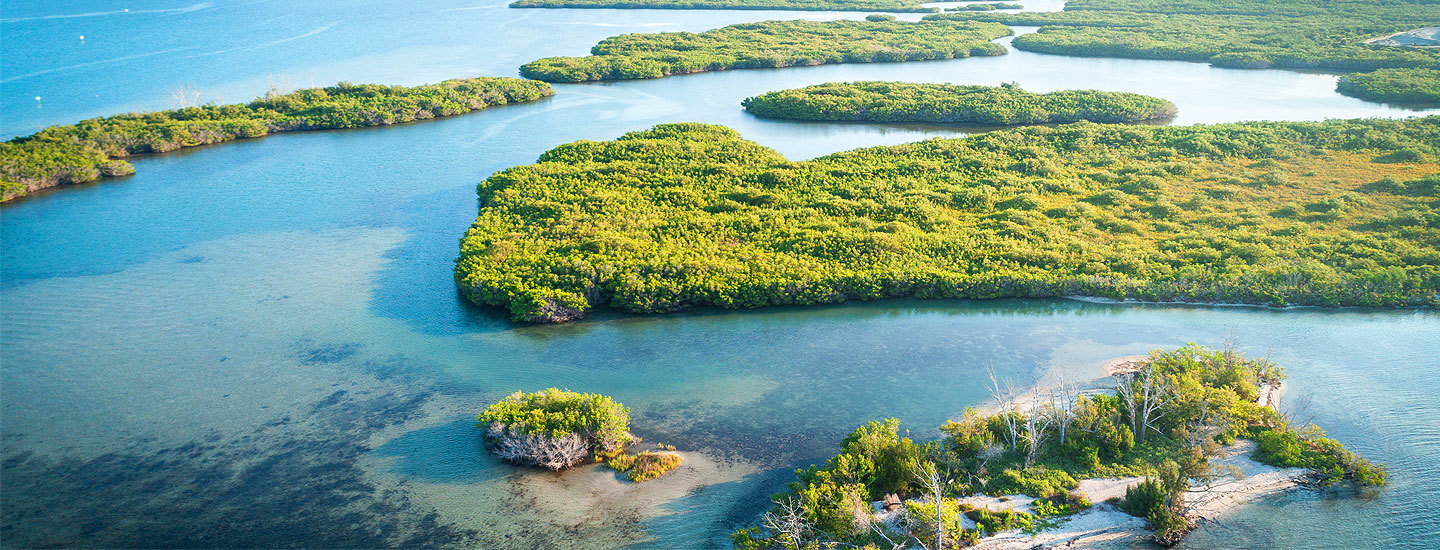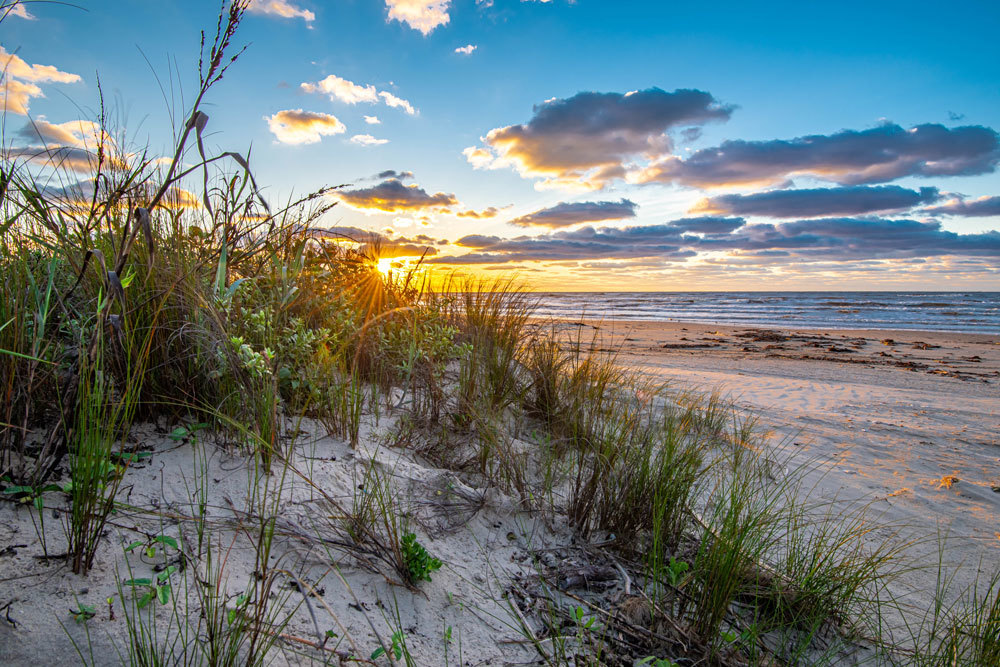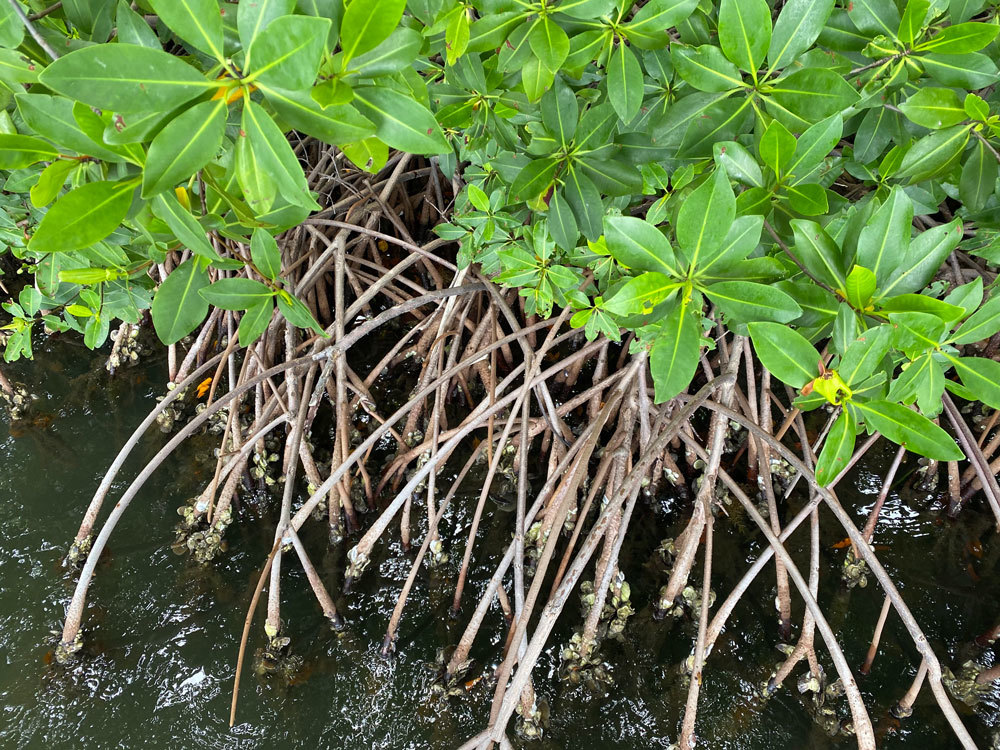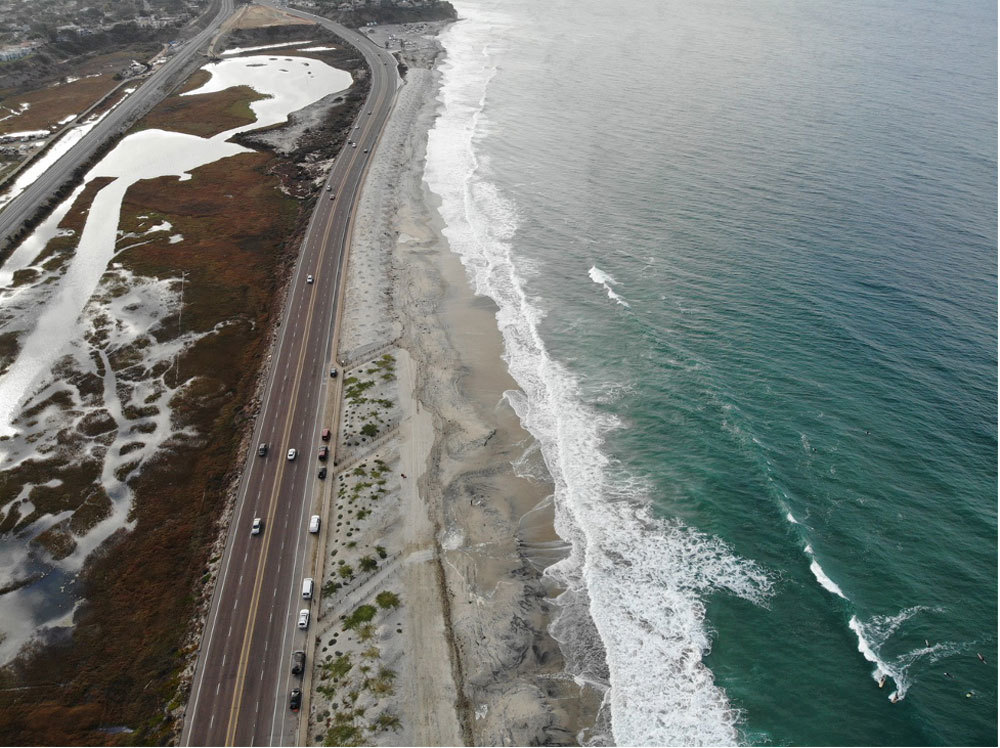
10.31.22
Nature-Based Solutions on our Coasts: A Frontline Defense Against Climate Change
By Zachary PlopperOver the course of human history and across cultures, our coastlines have been used and perceived in very different ways. For many indigenous peoples the coast has provided a significant source of food and other critical resources while holding deep spiritual importance. Estuaries, bays, and dunes inconvenienced explorers, adding days to their journeys as they had to circumnavigate or trudge through these natural barriers. As the shorelines of the United States developed over the past two centuries, coastal wetlands became a place to dump our trash, sewage, and industrial waste, and fill with roads, factories, and other development. To protect shorefront homes, infrastructure, industry, and other uses against the ocean elements, we have paved and armored coastal bluffs and beaches, a practice that in the long run exacerbates erosion.
It is widely recognized today that our coastlines provide immense ecological and economic value. Beaches, wetlands and dunes are critical nesting and feeding grounds for resident and migratory birds. Nearshore marine ecosystems provide spawning sites for fish and key habitats for a variety of wildlife. The coast and its resources provide significant revenue through tourism and fisheries while giving us incredible places to play.

In addition to these benefits, the coast provides ecosystem services that are becoming ever more precious as our climate changes. Beaches and dunes buffer coastal communities, businesses, industries, infrastructure, and sensitive habitat against wave energy and storms. Salt marsh, sea grass, and mangroves also absorb rising seas and storms while capturing immense amounts of carbon, up to five times more than forests on land. These blue carbon ecosystems can lock away that carbon for thousands of years in surrounding sediment if left undisturbed. As our sea levels rise, up to seven feet in many areas by 2100, and a foot by 2050, protecting, restoring, and adaptively managing our beaches, dunes, and wetlands will be critical in order to maintain their services.

These are simple nature-based solutions - tapping into the power of nature to protect nature, cultural sites, coastal communities, roads, rail, industry, small businesses, and all of the things that bring us joy along our coastlines whether that’s surfing or sandcastles. While decarbonizing the global economy is essential to combat climate change, implementing nature-based solutions on our coasts is a critical frontline defense.
For more than a decade, Surfrider and its network has been a leader in nature-based solutions across the country. Surfrider’s Space Coast chapter in Florida restores coastal dunes by planting sea oats that help anchor the sand against storms, wind and erosion. Down the coast the Miami chapter as well as the Cape Fear chapter in North Carolina also have active dune restoration programs.

In Puerto Rico, Surfrider is leading efforts to restore mangrove forests that were damaged by Hurricane Maria in 2017 and shoreline along Tres Palmas Marine Reserve, the first marine reserve established on the island. On northern California’s Humboldt coast, Surfrider is working with the Wiyot tribe, who have been stewarding this coastline for time immemorial, and local partners to protect miles of unique forested dunes and wetland coastline. In Ventura and Cardiff in southern California, Surfrider helped advocate for and lead two living shoreline projects that moved vulnerable infrastructure off the coast, and replaced it with natural dunes. Through these living shorelines coastal access is enhanced, wildlife is returning, and the beach and other resources are more resilient to a changing climate.

Meanwhile, at a federal level, Surfrider is advocating for impactful investments in coastal resilience through the Inflation Reduction Act, Infrastructure Investment and Jobs Act, and other legislation. Surfrider is asking for more living shorelines and funding for climate-smart wetland restoration such as restoring surrounding habitat to enable upland migration with rising seas. The Ocean-based Climate Solution Act, a campaign priority for Surfrider, includes other opportunities to unlock nature-based solutions along our coasts.
How we use and regard our coastlines has changed over history but it is clear that now they must be utilized as wisely as possible. If we do not act quickly we are putting our communities, businesses, roads, industry, and nature at even more risk than they already are. Our coastlines are not static, they are ever changing. With climate change accelerating it's imperative that we reconsider how we manage our coasts by tapping into nature’s superpowers.
To support Surfrider’s nature-based solution efforts please click here.
